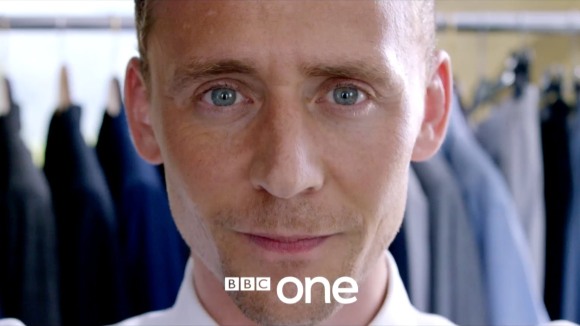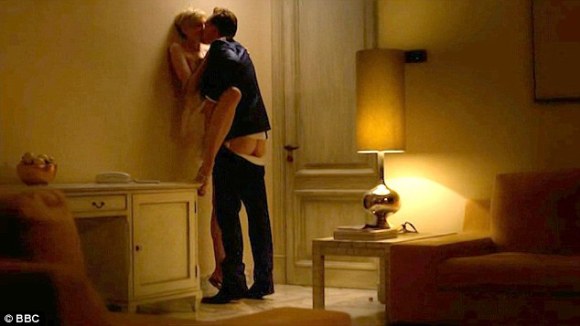
If you took art history at college, you know this image means “privileged white British actor in a relatively edgy series for a privileged white British audience.”
The Good
- Olivia Colman’s performance
- All 1.90 metres of Elizabeth Debicki
The Bad
- Generic good white guy
- Generic bad white guy
- Generic brown guys
- Generic plot about white guys doing illegal trades with brown guys
Okay, let’s get this out of the way first: “The Night Manager” is a stupidly pretentious name for a series that spends less than 30 minutes of the entire running time about flippin’ hotel managing. What does his night managing skills contribute to the story, anyway? Absolutely nothing. It would’ve been better named ‘The Pom Thriller’ or ‘The Bond Candidacy’, or ‘Mission: Impossible — Tom Protocol ‘. Because that’s what it most definitely is trying to channel, not an authentic, down to earth le Carre spy story.
Why are people raving about the series? It’s pretty simple: Tom Hiddleston hogs the screen for about six hours and doesn’t really cock it up. Hugh ‘House’ Laurie also acts in it. It’s about spies. It’s about government conspiracies. It also features some flashy locations such as Spain, Monaco, and Egypt. But really, it’s mostly just about Tom Hiddleston.

It’s also about Tom Hiddleston’s butt. Tumblr must be crazy right now.
Does that make for a good spy drama? Is it another peg in television’s apparent dominance in the audiovisual medium?
Not really.
I mean, The Night Manager is essentially about illegal arms dealing. No biggie in either the film or television empire. The problem it has is that it doesn’t even have a fresh twist to the concept. We’ve seen sexy espionage and saucy government corruption before, and it didn’t take six flipping hours to get somewhere either.
Furthermore, because it’s BBC One, and because a lot of money has been poured into it, it has to pander to a large audience. Therefore, despite being updated to reflect modern political events, it’s used as window dressing to look ‘exotic’ and ‘edgy’. Come to think of it, even the first Iron Man movie had something more to say about arms trading than this ‘adult’ series, and the point of Iron Man was to have two idiots bash each other to bits in weaponized suits.
But if the plot is vanilla, it’s all about the characters right? If it’s a le Carre story, it’s all about the ambiance, right? Sure, but as an expensive BBC One show, it’s all so bloody generic:
Tom Hiddleston is white British spy guy. Hugh Laurie is a white British bad guy. Elizabeth Debicki is the white two-timing girlfriend guy. Some ethnic white guy is the white ethnic bodyguard guy. Tobias Menzies is the corrupt politician guy. There’s also a token black guy with an American accent to prove to you that the stakes are super high!
Ugh, what a bloody bore.
Oh, oh, oh! But the head of the spy project is not a man like in the original novel, but a middle-class, middle-aged woman! She’s also pregnant but it’s cool and progressive that she completely disregards the safety of her labour, and double cool that its her husband that has the lame teaching job whereas she’s a badarse spy. Yay, feminism! Yay female empowerment! lel :3
Sod off.
Okay, I admit that despite being a product of Social Justice Warrior stupidity, Olivia Colman’s performance as Angela Burr is the best thing about the series (apart from every shot of Elizabeth Debicki). She simply had more elements of her character to work with: her personal life, her professional life, and the multiple conflicting interests surrounding her project. If only literally every other character was given the same treatment!
But you see, that’s not what the television audience necessarily want. Like I said, people are unashamedly in adoration because it simply has Tom Hiddleston and Hugh Laurie in it. They’re quality actors sure, but it makes me wonder if anyone raving about this show actually care about the story proper, or if they would’ve enjoyed watching these guys in any damn thing. I wonder if people would still like them if they dressed up as make believe fantasy gods and uttered ridiculously stupid lines about world domination and such.

Oh, wait.
So yeah, The Night Manager. In my opinion, it ranks much lower than Fair Game.
Yeah, Fair Game. You remember that movie, right?
That really good CIA conspiracy thriller directed by Doug Liman?
Starring Naomi Watts and Sean Penn?
From 2010?
No, you don’t?
Exactly. The Night Manager isn’t as good as the feature film you forgot about, you nincompoop.
Verdict: It exists.







